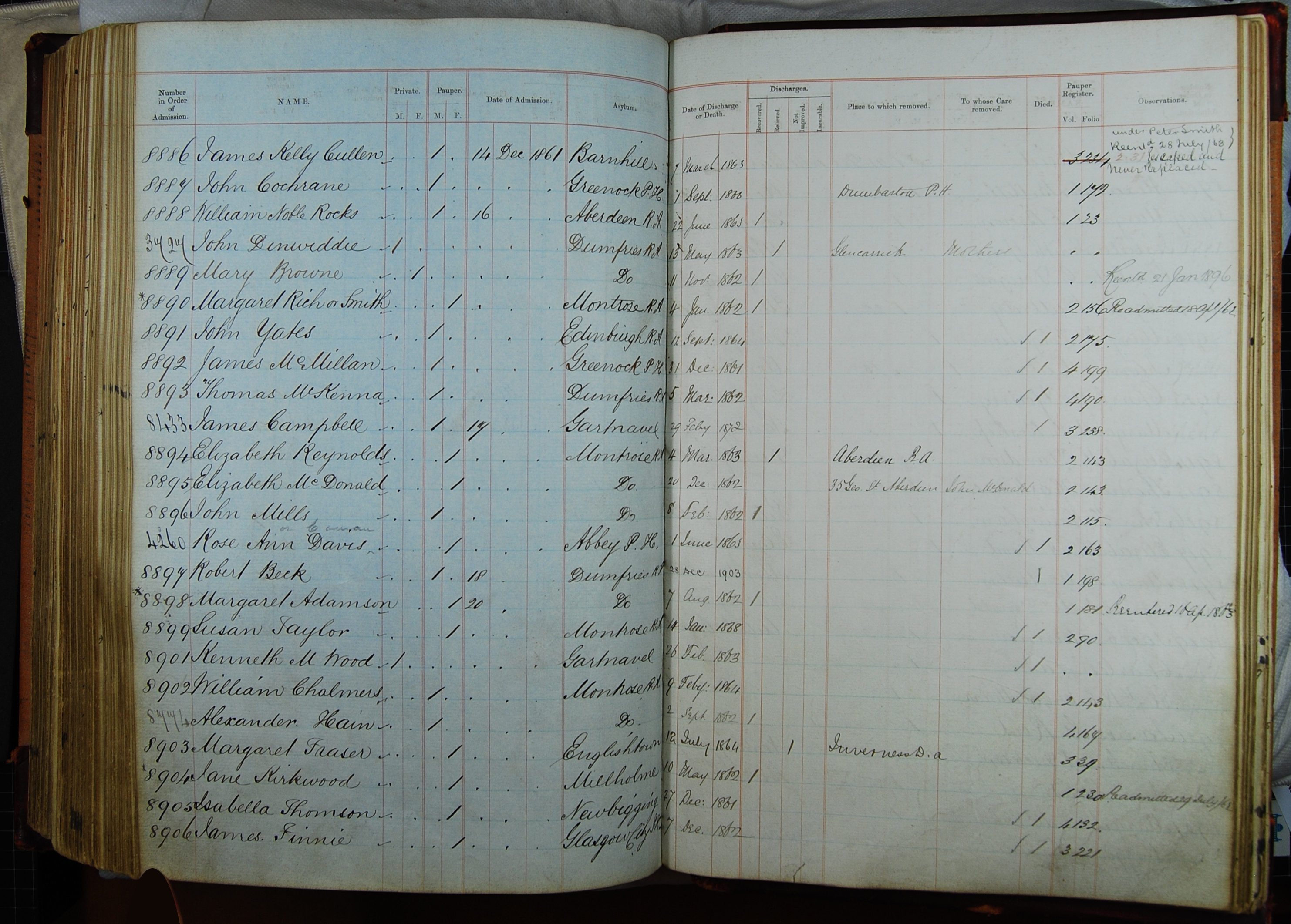The biggest problem I have in my work is that I am way too easily distracted! Here is an example. I was searching the Tongland Kirk Session Minutes (CH2/1244/2) in the National Records of Scotland the other day and found this very interesting entry from 2 September 1869:
Voluntarily compeared Ann Bird or Morton wife of Joseph Bird, Sailor who confessed that in the month of October last she gave birth to a child in uncleanness, she having been married in the month of July previous: On being admonished to be ingenuous and to speak the truth, she declared that Jonathan Turner was the partner of her guilt and the father of her child. Her husband Joseph Bird is known to bear testimony corroborative of the statement, and although disowning the paternity of the child has adopted it as his own. Having been solemnly admonished by the Moderator she was absolved from scandal.
 |
| Tongland Kirk |
A search in the birth records found the birth certificate of the unnamed child. James Morton (or Bird) was born on 1 October 1865, and it is column 4 of his birth certificate which is the most interesting. Column 4 on a Scottish birth certificate gives the ‘Name, Surname, & Rank or Profession of Father, Name, and Maiden Surname of Mother And Date and Place of Marriage’. In this column on James’ birth certificate we read: “Ann Morton, married on 22nd July last to Joseph Baird, sailor who she declares is not the father of the child, & further that he was at sea for Months prior to 18 July 1868.”
A search in the census of 1871 shows that James (aged 2) was living with his maternal grandparents. I’ve not traced this family any further as I really should be doing research for clients but if you are related I would love to hear from you.
What do we learn from this? It is important to look at as many records as possible to get a full picture of what’s going on within a family, which can take effort. Historic Scottish birth certificates are available online but Kirk Session records are not (yet). For the time being you can access them in Edinburgh and various satellite locations around Scotland, including archives in Hawick, Aberdeen, Kilmarnock and Glasgow. There are other archives who also have access to the digital images, it’s worth checking with the National Records of Scotland to see if an archive near you has access.
The fact that the Church of Scotland Kirk Sessions are digitised is a great help but there is as yet no index to most of these minutes. Having said that, I wouldn’t have found this entry if I had used an index, when you browse a volume interesting entries jump out at you. If your family is from a small to medium-sized parish in terms of population, and you have access to the digital images, I would recommend browsing the volumes; who knows what you will discover!



